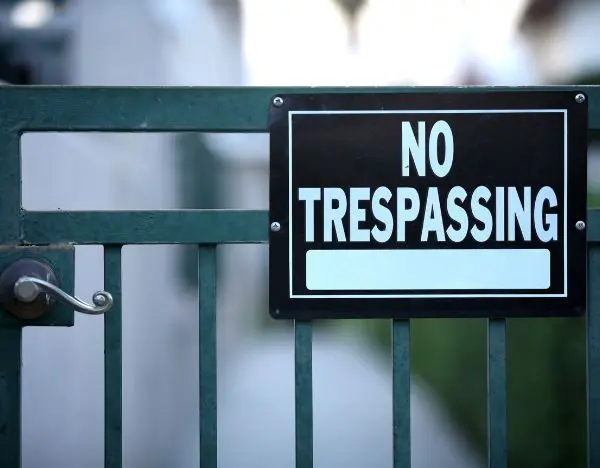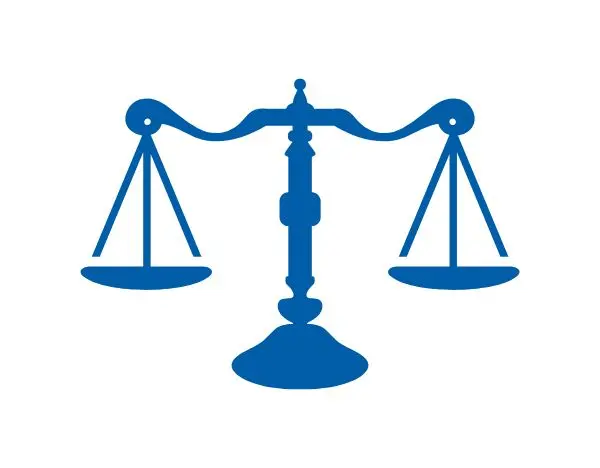How to Beat a Trespassing Charge in Buffalo

How to Beat a Trespassing Charge in Buffalo
At Trbovich Law Firm, we understand that facing a trespassing charge in Buffalo can be overwhelming. Whether you've been accused of unlawfully entering private property, remaining in a place after being asked to leave, or crossing restricted areas, there are several effective defense strategies that could help you beat a trespassing charge. This guide will walk you through the essential aspects of trespassing laws in Buffalo and outline potential defenses to protect your rights.
Understanding Trespassing Laws in Buffalo
Under New York Penal Law § 140.05, trespassing occurs when a person knowingly enters or remains unlawfully on a property. To successfully beat a trespassing charge, it's crucial to understand that prosecutors must prove beyond a reasonable doubt that you:
- Entered or remained on the property
- Did so knowingly
- Had no legal right or permission to be there
What To Do If Charged with Trespassing in Buffalo
Common Trespass Charges in Buffalo
At Trbovich Law Firm, we regularly handle various types of trespassing cases in Buffalo. Below are the most common trespassing charges with their corresponding New York State Penal Law statutes:
- Trespass (§ 140.05): "A person is guilty of trespass when he knowingly enters or remains unlawfully in or upon premises. Trespass is a violation."
- Criminal Trespass in the Third Degree (§ 140.10): "A person is guilty of criminal trespass in the third degree when he knowingly enters or remains unlawfully in a building or upon real property which is fenced or otherwise enclosed in a manner designed to exclude intruders. Criminal trespass in the third degree is a class B misdemeanor."
- Criminal Trespass in the Second Degree (§ 140.15): "A person is guilty of criminal trespass in the second degree when he or she knowingly enters or remains unlawfully in a dwelling. Criminal trespass in the second degree is a class A misdemeanor."
- Criminal Trespass in the First Degree (§ 140.17): "A person is guilty of criminal trespass in the first degree when he or she knowingly enters or remains unlawfully in a building, and when, in the course of committing such crime, he or she: (1) Possesses, or knows that another participant in the crime possesses, an explosive or deadly weapon; or (2) Possesses a firearm, rifle or shotgun. Criminal trespass in the first degree is a class D felony."
- School Trespass (Education Law § 3210): "No person, not a student in regular attendance, shall enter or remain upon school grounds in violation of rules for preservation of public order. A violation of this subdivision shall be a violation."
- Railroad Trespass (Railroad Law § 83): "No person other than those connected with or employed upon the railroad shall walk upon or along its track or tracks, except where the same shall be laid across or along streets or highways, in which case he shall not walk upon the track unless necessary to cross the same."
- Agricultural Trespass (Agriculture and Markets Law § 140): "A person who, without the consent of the owner thereof, enters upon any orchard, fruit tree, vineyard, berry patch, truck garden, or other agricultural land where fruits, vegetables, grain or other crops are grown, for the purpose of taking, destroying or injuring any such fruits, vegetables, grain or crops, is guilty of a violation."
- Parks Trespass (Buffalo City Code § 309-23): "No person shall enter or remain in any park between sunset and sunrise except as authorized by permit from the Commissioner."
- Criminal Trespass with Intent to Commit a Crime (§ 140.35): "A person is guilty of criminal trespass with intent to commit a crime therein when he knowingly enters or remains unlawfully in a building with intent to commit a crime therein. Criminal trespass with intent to commit a crime therein is a class E felony."
- Burglary Related Trespass (§ 140.20): "A person is guilty of burglary in the third degree when he knowingly enters or remains unlawfully in a building with intent to commit a crime therein. Burglary in the third degree is a class D felony."
- Public Building Trespass (§ 140.10(d)): "A person is guilty of criminal trespass in the third degree when he knowingly enters or remains unlawfully in or upon premises which consist of public housing... or a public housing project."
- Posted Property Trespass (Environmental Conservation Law § 11-2111): "No person shall enter or remain upon posted lands without the written permission of the owner or lessee thereof, except for fishing in posted streams, lakes or ponds."
- Retail Property Ban (§ 140.10(e)): "A person is guilty of criminal trespass in the third degree when he knowingly enters or remains unlawfully upon real property... after personally being served with notice of trespass."
- Construction Site Trespass (§ 140.10(f)): "A person is guilty of criminal trespass in the third degree when he knowingly enters or remains unlawfully in a building or upon real property... where construction or demolition work is being performed."
Contact Trbovich Law Firm immediately if you're facing any of these trespassing charges in Buffalo. The specific statute under which you're charged will significantly impact your defense strategy and potential penalties. Our criminal defense team understands these laws in detail and can build a defense strategy tailored to your specific situation.
How to Beat a Trespassing Charge in Buffalo
At Trbovich Law Firm, we understand that facing a trespassing charge in Buffalo can feel overwhelming. This guide outlines effective strategies and essential steps to help you defend against trespassing allegations. With proper preparation and legal guidance, many trespassing charges can be successfully challenged.
Understand the Elements of Trespassing
A trespassing charge in Buffalo requires prosecutors to prove you knowingly entered or remained on property without permission. The key word here is "knowingly" - if you had no way of knowing you weren't allowed on the property, this could form the basis of your defense. The prosecution must demonstrate beyond reasonable doubt that you were aware you had no right to be there.
Document Everything Immediately
Time is critical when building a defense against trespassing charges. Take photographs of the property, including any areas where signage should have been posted. Note the condition of fences or barriers. Record the names and contact information of any witnesses present. These details often prove crucial in challenging the prosecution's case.
Review Property Boundaries and Public Access
Many trespassing charges stem from confusion about property lines or public rights of way. Research property records and maps to determine if the area in question includes public easements or shared access points. In Buffalo's older neighborhoods, property boundaries sometimes differ from what's apparent on the surface, potentially providing grounds for your defense.
Gather Evidence of Permission
If you believed you had permission to be on the property, collect any evidence supporting this belief. Save text messages, emails, or voicemails from the property owner or tenant. Document any history of previous access or traditional use of the property. Even implied permission can serve as a valid defense against trespassing charges.
Challenge Notice and Signage
New York law requires adequate notice against trespassing. Examine whether the property had clear, visible "No Trespassing" signs. If signs were missing, damaged, or obscured, this weakness in the prosecution's case could help beat the charge. Pay special attention to whether warnings were posted at usual points of entry.
Document Weather and Visibility Conditions
Environmental conditions at the time of the alleged trespassing can significantly impact your case. Poor visibility, severe weather, or darkness might explain why you didn't notice property markers or warning signs. Record these conditions and gather weather reports to support your defense.
Investigate Law Enforcement Procedures
The actions of law enforcement during your trespassing incident matter significantly. Note whether officers gave proper warnings or followed correct protocols. Request body camera footage if available. Procedural errors by law enforcement can strengthen your defense strategy.
Consider Emergency or Necessity Defenses
Sometimes, entering property without permission happens due to emergency circumstances. If you entered the property to help someone in danger, escape harm, or address an urgent situation, document all factors that made your actions necessary. Courts often recognize necessity as a valid defense against trespassing charges.
Evaluate Mental State and Intent
Trespassing charges require proving intentional conduct. If you were confused, disoriented, or accidentally wandered onto the property, these factors could help your defense. Medical conditions, medications, or other circumstances affecting your mental state at the time should be documented.
Understanding Local Buffalo Ordinances
Buffalo has specific local ordinances that may affect your case. These regulations sometimes differ from state law and could provide additional defense options. Understanding how local laws interact with state trespassing statutes can reveal opportunities to challenge the charges.
Maintain Professional Conduct
While your case proceeds, avoid any contact with the property owner or return to the property in question. Your behavior during this time can impact the court's perception of your case. Stay professional and let your criminal defense lawyer handle all communication related to the charges.
Build a Timeline of Events
Create a detailed chronological account of everything that happened before, during, and after the alleged trespassing incident. Include times, locations, witnesses present, and any interactions with property owners or law enforcement. This timeline helps identify inconsistencies in the prosecution's case.
Address Potential Civil Issues
Sometimes trespassing charges involve related civil matters, such as property damage claims. Understanding the full scope of both criminal and civil liability helps develop a comprehensive defense strategy. Document any pre-existing property conditions to protect against unfounded damage claims.
Contact Trbovich Law Firm
Facing trespassing charges in Buffalo requires swift, strategic action. At Trbovich Law Firm, we have helped many clients successfully defend against trespassing allegations. Contact us immediately to discuss your case and begin building your defense. Time-sensitive evidence needs to be preserved, and early intervention often leads to better outcomes.
How a Criminal Trespass Defense Lawyer Can Help

At Trbovich Law Firm, our criminal defense lawyers provide crucial assistance to clients facing trespassing charges in Buffalo. Here's how we can strengthen your defense and protect your rights:
- Evidence Analysis: Review all evidence against you, identify weaknesses in the prosecution's case, and find documentation that supports your defense.
- Property Research: Investigate property records, boundary lines, and public easements to determine if you had a legal right to be in the area.
- Witness Interviews: Contact and interview witnesses who can verify your version of events or testify about property access permissions.
- Legal Notice Verification: Examine whether proper "No Trespassing" signs were posted and visible, as required by New York law.
- Permission Documentation: Gather and organize evidence of any explicit or implied permission you had to be on the property.
- Police Report Analysis: Review police reports for inconsistencies, procedural errors, or violations of your rights during the incident.
- Security Footage Review: Obtain and analyze surveillance footage that might support your defense or contradict the prosecution's claims.
- Defense Strategy Development: Create a customized defense strategy based on the specific circumstances of your case and local Buffalo laws.
- Plea Negotiation: Negotiate with prosecutors for charge reduction or dismissal when appropriate, potentially avoiding a criminal record.
- Court Representation: Present your case effectively in court, challenge evidence, and advocate for your rights before the judge.
- Administrative Tasks: Handle all court filings, deadline tracking, and procedural requirements to ensure your case stays on track.
- Property Owner Communication: Manage all interactions with the property owner or their representatives to prevent complications in your case.
- Alternative Resolution: Explore alternative resolution options like community service or conditional dismissal when beneficial.
- Rights Protection: Ensure your constitutional rights are protected throughout the legal process, from arrest through resolution.
- Future Prevention: Provide guidance on avoiding future trespassing issues and maintaining a clean record.
Contact Trbovich Law Firm today for a review of your trespassing case. Our experienced criminal defense team understands Buffalo's local courts and can help navigate your charges toward the best possible outcome. The earlier we begin working on your defense, the more options we may have available to help resolve your case favorably.
What To Do If Charged with Trespassing in Buffalo
At Trbovich Law Firm, we understand that receiving a trespassing charge can be stressful and confusing. Here's a straightforward guide on what to do immediately after being charged with trespassing in Buffalo:
- Remain Silent: Exercise your right to remain silent when interacting with law enforcement, as anything you say can be used against you in court.
- Document the Incident: Take photos of the location, gather witness contact information, and write down your recollection of events while they're fresh in your memory.
- Preserve Evidence: Save any text messages, emails, or written communications that might show you had permission to be on the property.
- Check for Signage: Note whether there were any visible "No Trespassing" signs, barriers, or clear property boundary markers at the location.
- Gather Witnesses: Identify and collect contact information for anyone who saw the incident or can testify about your right to be on the property.
- Review Security Footage: Request copies of any surveillance video from the property or surrounding areas before it gets deleted.
- Keep Paperwork: Save all documentation related to your charge, including the ticket, court notices, and any communications from law enforcement.
- Check Property Status: Research whether the area might be public property or have a public right of way that would make trespassing impossible.
- Document Past Access: Collect evidence of any previous times you were allowed on the property with permission.
- Record Police Conduct: Make detailed notes about how law enforcement handled the situation, including any warnings given or procedures followed.
- Avoid Contact: Do not return to the property or contact the property owner unless advised to do so by your criminal defense lawyer.
- Consider Mental State: Write down any factors that might show you didn't knowingly trespass, such as confusion about property boundaries or belief you had permission.
- Check Local Laws: Review Buffalo's specific trespassing ordinances, as local laws may differ from state regulations.
- Track Deadlines: Note all court dates and response deadlines related to your charge.
- Contact Your Insurance: If the incident involved any property damage, notify your insurance company promptly.
Contact Trbovich Law Firm immediately for help with your trespassing charge. Our criminal defense strategies have helped many Buffalo residents achieve favorable outcomes in their cases. Remember, the sooner you begin building your defense, the better your chances of successfully resolving the charge.
Protect Your Rights – Contact Trbovich Law Firm Today
Don't let a trespassing charge impact your future. Our criminal defense team is ready to review your case and start building your defense immediately.

